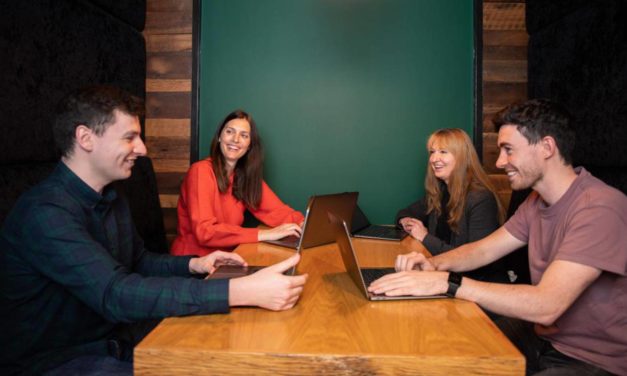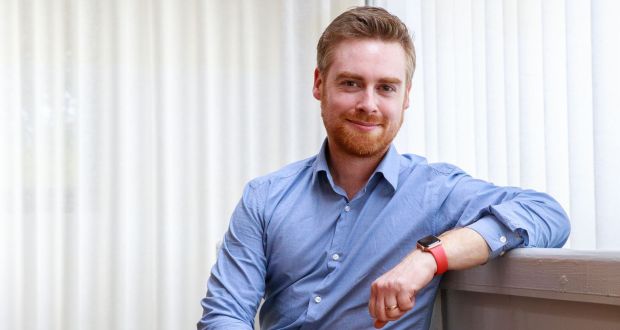This article is sponsored by Tines as part of the ‘10 Minutes With…’ series.
How did you get started in software engineering?
My dad has always been really interested in technology, so I was raised in the middle of Commodore Amigas and early dial-up internet connections. Like many other people my age, my interest in computers was kick-started through video games. My first real taste of the development side of them came through The Elder Scrolls III: Morrowind, which came with a construction set that you could use to change the whole game however you wanted to. This level of customisability absolutely blew my mind, and I haven’t been able to shake the fascination since.
I knew all through secondary school that I wanted to study computer science in college and go into software development from there. I didn’t really do any serious coding before college, but I did a tonne of hobby projects with computers and other electronics. While they didn’t give me a head start in coding itself, they gave me a good understanding of how computers and networks work in general.
They also gave me a number of electric shocks but, as far as I can tell, those haven’t had an impact on me either way.
Why did you choose to work with Tines?
I’ve always preferred working in startups over larger companies, so when I was last looking for a new role, I was already quite curious about Tines based on their recent Series A round. The fact that the company was founded and based in Ireland attracted me, too – in my experience, this is often the difference between doing impactful core product work and providing support for products built elsewhere.
I met Eoin Hinchy, our chief executive, for a chat in the old Tines office in Rathmines, and he gave me a tour of the product. Two things struck me straight away: that the product was incredibly powerful, and that Eoin really knew what he was talking about. All the other team members I talked to seemed just as sharp and as sound as he did, so I knew straight away that I wanted to join.
That was when there were seven people in the company. Now there are over 120, and I’m delighted that the standards of sharpness and soundness haven’t dropped one bit – the whole team really is world-class.
What are you working on at present?
I manage the Platform team in our engineering department, so a lot of my time is spent supporting the team on the projects they’re working on. Currently, those are focused on evolving our cloud architecture to help us scale to our increasing customer count and improving developer tooling to help our other teams build the product faster and with less effort.
Beyond those projects, I also do a lot of work on our recruiting efforts, coordinate a lot with other teams. And, of course, there’s still the odd bit of coding in there.
What is the best part of your job?
I think the job of an engineering manager ultimately boils down to building the best team you can and creating the most supportive environment and culture that you can for your team to work in. The best part of the job is when you’re able to do that in some small way – taking something that always bothered you as an engineer and saying: “We’re going to do better than that.”
:quality(70)/cloudfront-eu-central-1.images.arcpublishing.com/irishtimes/IWE6MAVQGLCX42Q4UDIPZU3H7Y.jpg)
‘This kind of work can feel like a big responsibility at times, but it’s worth it for those moments when you know you’ve made a difference’
A good example of this is the work we’ve done around diversity and inclusion. It’s often a complex and difficult topic, and deciding on the right approach to improving it can be unnerving. That being said, it’s an important part of our company, and I’m proud of the steps we’ve taken so far. For one, we recently replaced our in-house coding test that we used when hiring software engineers with ByteBoard to make the candidate experience smoother, quicker, more enjoyable and also more inclusive.
This kind of work can feel like a big responsibility at times, but it’s worth it for those moments when you know you’ve made a difference.
[For more information on Tines careers in Dublin, and to apply to positions, visit our careers site]
Where do you see your industry five years from now?
I really see the automation space growing massively in two directions. On the one hand, you’ll have the people who are already using tools like Tines growing more familiar with those tools and building more advanced workflows, naturally using the features we have planned to support that more advanced work.
On the other hand, you have the people who aren’t using automation tools like that because the tools still require too much technical knowledge. This is an area that we have a tonne of ideas around, and I think five years from now, Tines will be even more approachable than tools like Microsoft Excel are today.
What would you advise someone thinking about interviewing for this position?
Don’t spend time practising the stereotypical LeetCode-style coding questions – our interview process is much more based on the kind of work we actually do on our team. Instead, spend time thinking about the most impactful projects you worked on and the most valuable contributions you’ve made in your work. Those real-world examples are of much more interest to us.
Ask lots and lots of questions – being curious is key! Finding the right software role can be as much about finding a company that fits you, aligns with your goals and also your career ambitions. There are lots of different, subjective approaches to this work, and asking the right questions in an interview can save you spending months in a job that you don’t enjoy.
What are the key skills and capabilities necessary to be good at what you do?
I believe the No 1 skill in software engineering is being able to learn new things. Innovation and iteration are in the very nature of the field, and there will never be a point in your career where you can stop learning and keep being successful. For me, though, that’s probably the most exciting and satisfying part of the work: every day involves something new that you’ve never seen before. It may be fast-paced sometimes, but at least it’s never boring.
What is the best career lesson you’ve learned so far?
Over the last few years I’ve become more and more appreciative of the importance of non-technical skills and business awareness. There are so many software engineers out there who are experts at coding and developing systems, but they never think about what they’re doing in the context of the business. Being aware of how the company makes money, why customers buy the product, and what the other teams in the company do can have a much bigger impact on your effectiveness than understanding fine-grained technical details.
Which industry professionals should people be following on Twitter/ LinkedIn?
There are two people I’ve learned a lot about two different areas from: Charity Majors, co-founder and CTO of Honeycomb; and Jennifer Kim, startup advisor and former head of people at Lever.
Charity Majors has been a great source of wisdom on the technical side – we’re very aligned with a lot of the philosophies she talks about, and we’re also big Honeycomb fans. Jennifer Kim provides a wealth of knowledge on how to hire a diverse team effectively and how to build an inclusive culture to ensure those new hires can flourish.
[ Tines.com ]










